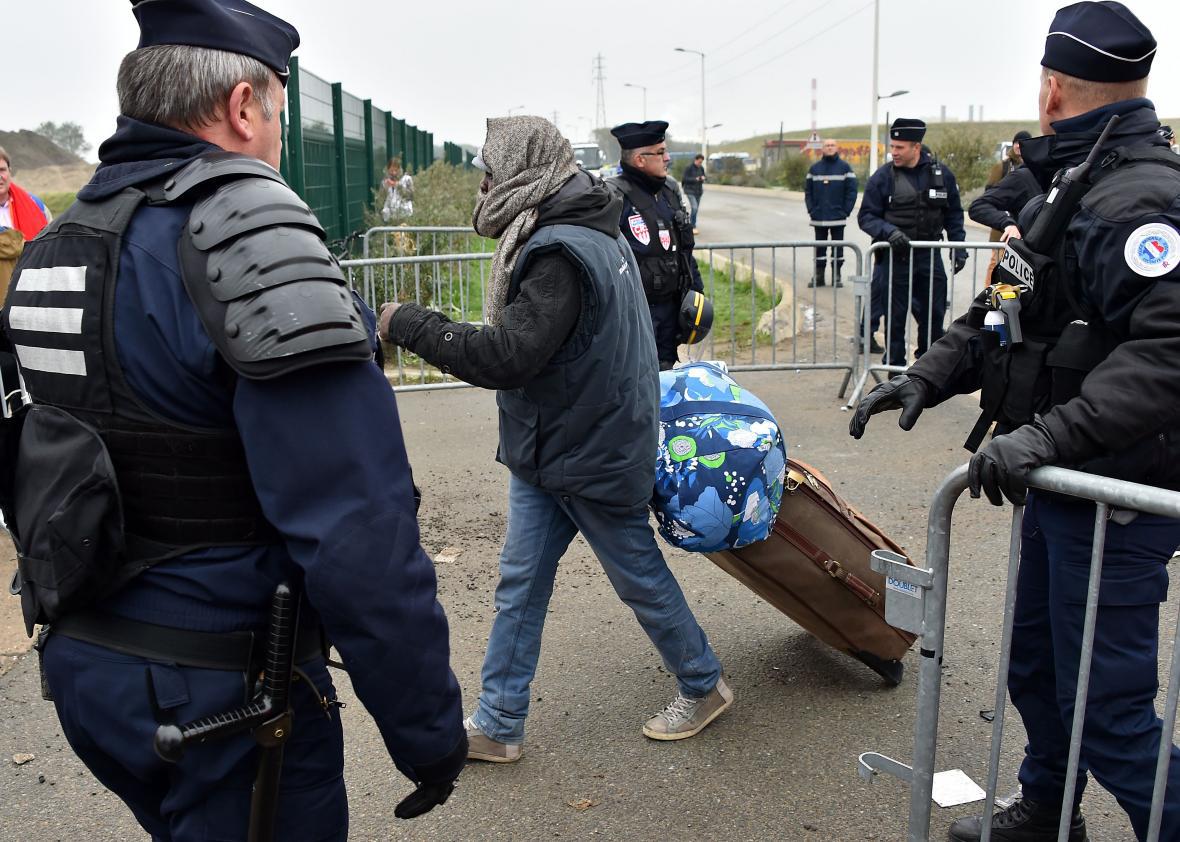French authorities began on Monday the process of moving refugees from the “jungle” refugee camp in Calais, France, where around 7,000 migrants have been living in increasingly squalid conditions in recent months as they waited to make attempts to sneak across the channel to Britain. Refugees have been living in the area in various arrangements for about 17 years, but the camp had grown massively in size during the current European refugee crisis. The current move by French authorities is more one of political expedience and making the problem appear to go away, than actually solving it.
There’s been resistance to the move, with a massive police presence on the scene responding to rioting at the camp Sunday night and other clashes over the weekend. But so far the process, which has been planned for weeks, seems to be happening in a mostly orderly fashion. Residents began on Monday boarding buses bound for 450 relocation centers throughout the country. The dismantling of the camp itself will start on Tuesday. British and French authorities are also rushing to process hundreds of unaccompanied minors, for fear that they will be lost amid the chaos of the next few days. Some children from the “jungle” had already been brought to the U.K. even before this week’s operation began.
The jungle’s continued existence was certainly unsustainable, but the new arrangement is hardly ideal. For one thing the draw of Britain, which is seen as more attractive than other European countries because of the international popularity of the English language and because it’s believed to be an easier place to get work in the black market, isn’t going away. It’s possible that many residents of the camp will scatter into the countryside then re-establish a new camp for those wishing to move to Britain once the coast is clear. Camps near the eastern side of the Eurotunnel have been shut down before, only to re-emerge. There’s also hostility about the relocation plan in many of the communities where current jungle residents are being sent. A camp set to house 90 people in the Paris suburb of Forges-les-Bains was burned in a suspected arson attack last month.
But by dismantling the jungle, France’s socialist government, deeply unpopular heading into an election year, is relieving pressure on a major chokepoint. Seven thousand people scattered in groups of a few dozen throughout the country are a much less visible symbol of desperation than they are bunched altogether in a single prominent location.
The move comes as fewer refugees are reaching southeastern Europe thanks to a deal struck between the EU and Turkey last year to limit migration. The number of those dying in the Mediterranean on the dangerous crossing route from North Africa and those living in camps in the Balkans, meanwhile, are actually increasing. But as long as these problems remain just outside Fortress Europe or on its periphery, it’s a problem that is easier for European politicians to ignore or marginalize. This is a welcome development for governments under pressure from a Europe-wide populist backlash from anti-immigrant voters, including many of those who voted to pass Brexit in the United Kingdom.
The crisis isn’t going away any time soon. But Europe does seem to be getting much better at sweeping it under the rug.
